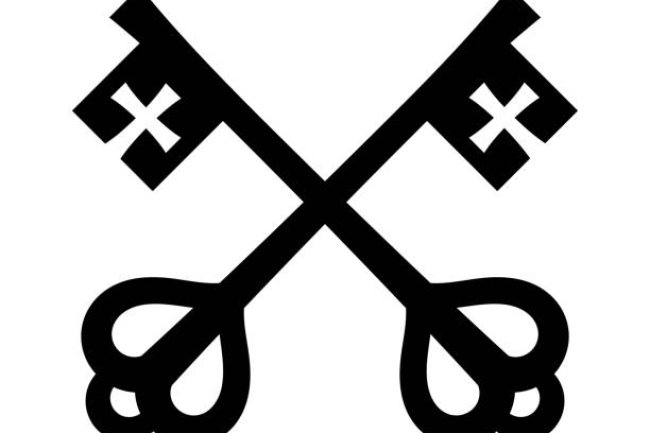HOW LONG WILL THE WATCHMAN REMAIN SILENT?
HOMILY FOR TWENTY-THIRD SUNDAY IN ORDINARY TIME, YEAR A. Readings: Ezekiel 33:7-9; Psalm 95; Romans 13:8-10 and Matthew 18:15-20.

With the innumerable sufferings and challenges that confronts us, it appears that those who ought to speak on our behalf have ceased speaking or have probably chosen the part of silence. Should we all remain silent in the midst of evil or what better approach do we need to correct evil? The liturgy of today reminds us of who we are, we are watchmen placed over the city. We are to identify evils or wrong doings and give corrective measures with love and with the aim of reconciling the offender with God. It questions our sense of moral responsibility at individual and communal levels.
In the first reading, we hear the prophet Ezekiel say, “You, son of man, I have made you a watchman for the house of Israel” (Ez. 33:7). Contextually, the verse has a military encampment that has posted guards. In such setting, if a guard sounds a warning and the rest of the encampment fail to rally, the guard cannot be held accountable. However, if the guard sees danger and fails to sound a warning, and the enemy is able to infiltrate the encampment and kill its inhabitants, then the guard is held responsible. Based on this , God appointed Ezekiel as a watchman over the house of Israel. If he fails to warn the wicked, they will die in their guilt, but he will be held responsible. If he warns them and they fail to change, he will be free. In view of this, Pope St. Gregory the Great in his homily on Ezekiel as a watchman said, “A watchman always takes up his position on the heights so that he can see from a distance whatever approaches. Likewise, whoever is appointed watchman to a people should live a life of the heights so that he can help them by taking a wide survey.” We can narrow this to our estate security personnel when they fail to sound alarm at the notice of danger.
We are all watchmen at various levels, over our household or families, over the societal group placed at our care, we are watchmen over the parish placed under us and on a superior level, a watchman over the Diocese. One way or the other, we have failed in our responsibilities and have acted negligently. We have failed to live a life of the height, we have failed to defend the flocks placed under us, we have failed to speak against evil because we don’t want to called ‘names’ and we have failed to correct with love.
When we fail to correct with love, God says to us as He did to the prophet Ezekiel, “The blood of the wicked man will be on our hand” (v.8). Invariable, we are responsible towards others and have the responsibility to correct all wrong doings or evil with love. We must not be indifferent to the decay in the society, family or the moments our voices ought to be heard, when we remain silent to evil; it will be to the detriment of our future. However, the focal point of correcting errors or evil should not be to destroy but to win the sinner back to God. This is what Christ equally points out in the Gospel.
Christ presents to us principles on how we can win sinners back to ourselves and to God. Invariable, Christ is telling us that dispute, conflicts and other differences will surely rise among us. The problem is not the vices but resolving them amicably. Taking cognizance of the terminology used, “If your brother sins against you go and tell him his fault” (Mt. 18:15). He did not say, “If you sin against your brother…” Practically, we are expected to make the first move of reconciliation not minding the offence of the offender. For this, he gave us three principles of reconciliation: first, is the one-on-one dialogue to win back our brother or the sinner; second, is the need of two or three witnesses and third, is to seek the aid of the Church or community. If the person in question refuses to listen or take correction on his or her evil, then treat him/her like a Gentile (pagan). Importantly, some of us don’t follow this principle, we are so fast to treat our enemies like pagans without provision for dialogue or the first, second and third steps. Quarrel or conflicts is certain among families and friends, among groups and institutes, but there must be resolution. The best resolution given to us is dialogue. Dialogue fosters unity, respect, relationship healing and growth within the community. Above all, it fosters love, which is evident in the second reading.
In the second reading, St. Paul reaffirm the teachings of Christ on mutual love. He said, “You shall love your neighbor as yourself. Love does no wrong to neighbor; therefore, love is the fulfilling of the law” (Rm 13:10). Love is to guide all our actions that even when we correct the wrong or evil of others, there won’t be any form of offense. We are not meant to be arrogant while correcting the wrongs of others, we are meant to correct with love and humility. Let the offence be condemned and not the offender, and even when we are corrected, let us accept it in humility. Doing so, our love becomes mutual as we share responsibilities.
Let us take a moment to evaluate ourselves and personalize this reflection: who are those that have offended me? How long has this offense put us apart? Do I need to wait for my offender to approach me? Why am I not taking the move of reconciliation? Am I full of pride or humble enough to make the move? What stops me from sending an apologetic text or whatsapp message to the one who has offended me? How do I create an enabling environment to manage conflict? These are areas we have moral responsibility to blow the horn of reconciliation when we see danger of division.
Today’s liturgy urges Christians to speak and act against evil in the society. There are Christians nationwide, they exist among those who make our laws and implement them, even though they are not of equal ratio. Wherever we are and whichever position we occupy, we must speak and act against evil within our confines so that evil don’t triumph over good. Let our worries not be on those who will be offended when we speak up or correct the wrong/evil, rather, let us be more worried about those who will be misled, those who will be deceived and destroyed when we do not speak. May God help us through Christ our Lord. Amen!
Happy Sunday!
Fr. Ken Dogbo, OSJ
What's Your Reaction?



















